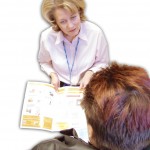
Epilepsy is a major issue for people with learning disabilities. The National epilepsy society suggest that around 30% of people with mild to moderate learning disability also have epilepsy and the more severe the learning disability, the more likelihood there is that the person will have epilepsy. However, diagnosing epilepsy in a person with learning disabilities can difficult, as people may find it difficult to communicate what they are feeling and what is happening to them. Some people may also have repetitive behaviours or movement disorders that could easily be mistaken for partial seizures. Estimates suggest that epilepsy may be misdiagnosed in around 25% of cases.
This systematic review set out to discover just how common such misdiagnosis was amongst people with learning disabilities and to explore what the reasons were for such misdiagnosis and the implications for of this professionals and how diagnosis might be improved.
The review team identified studies in English between 1998 and 2008 which were then critically appraised. Eight studies were found which met the inclusion criteria, six cohort studies and two case studies.
The cohort studies showed that between 32% and 38% of people with learning disabilities were diagnosed as not having epilepsy or as having non-epileptic events. The authors identified the main reason for misdiagnosis as misinterpretation of behavioural, physiological, syndrome related, medication related or psychological events by parents, paid carers and health professionals.
They conclude that staff and family members need to be made much more aware of the possibility of misdiagnosis and call for a range of further research studies to be carried out.
The misdiagnosis of epilepsy in people with intellectual disabilities: A systematic review, Chapman M et al., in Seizure, 20, 2, 101-106.

[…] equal concerns about the use of anti-convulsant agents, especially in light of the findings of a recent systematic review that found significant levels of misdiagnosis as misinterpretation of behavioural, physiological or […]